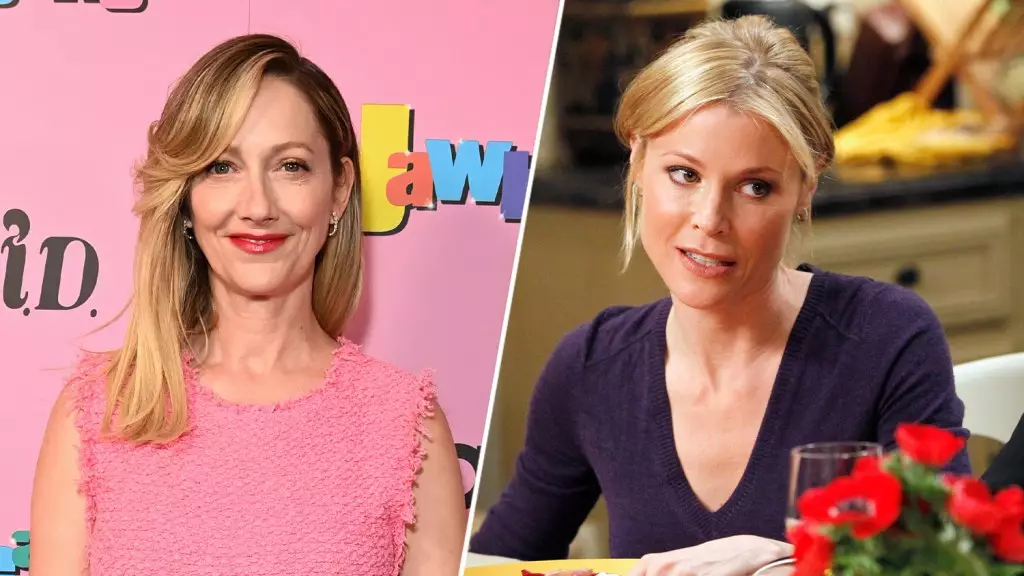Over a decade after the debut of the iconic sitcom *Modern Family*, actress Judy Greer has opened up about her decision not to audition for the role of Claire Dunphy. This candid reflection provides a fascinating insight into the complexities of career choices, personal desires, and the marked difference between film and television roles in Hollywood. Greer’s revelations challenge the oft-held notion that every role in a successful series is inherently desirable.
At the time when Greer was considering the role of Claire Dunphy, she was in a stage of her life where motherhood was not remotely on her agenda. In her conversation with Jesse Tyler Ferguson on his podcast *Dinner’s On Me*, Greer candidly expressed that she didn’t even want children. This sentiment influenced her decision-making process regarding the audition for a character that was essentially defined by her role as a mother. Greer articulated how the prospect of playing a mother with three kids, one of whom was in high school, made the opportunity feel overwhelming rather than enticing during that particular phase of her career.
Greer’s hesitation underscores a critical aspect of her decision-making: the significant shift in identity and public perception associated with playing a maternal role on a long-running television show. She recognized that while movies can allow for a character to be pigeonholed temporarily, a television series entails a long-term commitment that could potentially confine her to a single typecast.
The conversation brought forth a reality that many actors face— the struggle between personal aspirations and the roles offered in the entertainment industry. Greer explained that playing a mother would reshape how she would be perceived by audiences and within the industry. There’s an inevitability in being branded as “America’s mom,” a title that comes with its own set of limitations. Greer’s desire for a varied career, filled with travel and diverse roles, created a conflict that many actors may face: the desire for steady work versus the allure of variety and creative freedom.
Furthermore, Greer’s insights reveal the broader implications of lifestyle choices in regard to career opportunities. By choosing not to pursue the role of Claire Dunphy, she maintained her freedom to explore various characters that aligned more closely with her personal interests and lifestyle. It’s a comfort to know that some actors recognize the sometimes harsh realities of celebrity and the toll it can take on personal lives.
In juxtaposition, Julie Bowen’s perspective on the auditioning process shines a different light on the competitive nature of landing significant roles. Bowen herself reminisced about her insecurities during auditions, expressing thoughts that many in the industry can relate to: the self-doubt and uncertainty that often accompany the process of seeking a coveted role. She thought she had bombed her audition due to her pregnant appearance, demonstrating the psychological challenges actors face—even amid success.
Bowen’s prioritization of securing work—noting the necessity of roles that “pay the bills”—highlights another reality of the acting profession that many outside the industry may overlook. For many actors, financial stability often takes precedence over the ideal career path, making the casting process full of choices fueled by necessity rather than passion or fit.
In the end, Greer’s decision and Bowen’s subsequent success illustrate the unpredictable nature of the entertainment industry. *Modern Family*, which ran for 11 seasons and garnered 22 Emmy Awards, is celebrated not only for its humor but also for its groundbreaking approach to family dynamics in America. It ventured into new territory with diverse storytelling that resonated with a broad audience, making it a cultural phenomenon.
With Greer’s resolute career choices juxtaposed against Bowen’s path to success, they exemplify the delicate balance actors must strike between personal aspirations and the realities of their profession. In journalism, this story serves as a reminder that every choice—even one made out of personal conviction—can lead to unforeseen paths that shape one’s career. As they continue their respective journeys, both actresses embody the myriad complexities of navigating a career in the ever-evolving landscape of Hollywood.

